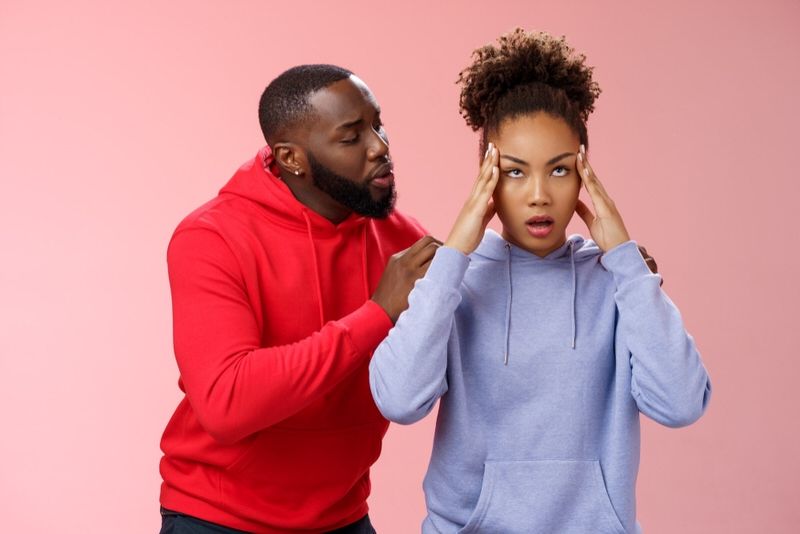There can be various reasons why you get attached to people easily, like how you were raised, or it could be due to an overly dependent and reactive personality. An emotional attachment reaches an unhealthy stage when it’s quite clear that you obsess over your relationships with people and when you live off their validation of you.
A dependent personality disorder is something to watch out for as it could take quite a toll on your mental health. While you cannot instantaneously get over an attachment disorder, with the help of psychiatric aid or cognitive therapy, and even by following good habits which boost your self-confidence.
It’s quite a natural thing to feel for someone and get attached or attracted to them over some time after getting to know them. But sometimes, you might feel that you get attached way too soon in your relationship or friendships. Being too attached to someone could lead to complications in the friendship or relationship. After all, none of us want to be intentionally overly clingy.
Sometimes it’s difficult to differentiate a healthy attachment from an unhealthy one, which is why it’s important to understand the kind of attachment you have with people to better your relationship with them.
Why do I get attached to people so easily? At what point does emotional attachment become unhealthy? How to differentiate a healthy attachment from an unhealthy one? Is there a disorder for being attached to someone? How can you overcome your attachment disorder?
Why do I get attached to people so easily?
The first thing you should get started on is finding the reason for your attachment issues. The most well-known reasons are listed out below.
- If you’ve had abandonment issues in your childhood – This is one of the most common reasons why you tend to hold on to someone emotionally and depend on their affection towards you immensely. If you’ve had a parent who wasn’t there for you when you needed them and if you’ve been neglected emotionally as a child, this is the most probable reason for your dilemma. This causes you to seek relationships with people that can recreate those childhood memories that you subconsciously long to have. You’ll find yourself feeding off their approval most of the time.
- You have an instinctive feeling that you can never be happy alone or single – If you’re scared to be single due to your fear of not being able to enjoy time by yourself, it will most definitely affect any relationship or friendship that you may have since you have a stronger urge of securing the relationship, even if things would get toxic.
- You might be getting distracted by the ‘shiny’ qualities of your partner or friend – When you value the flashy qualities of a person, you end up incapable of shattering that initial image that you had of them and make you obsess over them.
- If you make relationship decisions based on your outburst of emotions – When you tend to instantly react to something based on emotion by jumping to conclusions at the spur of the moment, your attachment might get toxic as there’s a chance of being entirely dependent on receiving your emotional validation from just one person. It’s important to take a step back and manage your emotions firstly if you’re an extremely sensitive person.
At what point does emotional attachment become unhealthy?

So, what kind of red flags can you expect as a result of an unhealthy emotional attachment? The answer may be easy to figure out as soon as you evaluate your moods and feelings by being self-critical.
The first red flag you could watch out for is if you constantly seek their validation and approval. If you’re struggling with self-esteem and you have very low confidence in yourself, you’ll find yourself completely depending on other people’s opinions about you.
You’ll find yourself urging to make a deeply attached relationship or friendship even for the slightest approval that someone has for you.
When someone you’re attached to disagrees with you, if you feel a sense of emptiness, hurt, or anxiety, this shows that your emotional attachment to them has become unhealthy.
When you’ve lost sense of yourself and feel that you cannot survive without a particular person, that too could be a red flag of extreme emotional dependency, which manipulators can use by making you live according to their wishes by promising you long-term affection.
Another important red flag to look out for is if your friendship or relationship gets halted due to that individual’s other commitments. Since your expectations of the friendship or relationship are not met, you may find yourself incapable of functioning without them.
This might lead to problematic behavior on your side, such as digging into their social media activity and being very critical and hurt about their other commitments.
A healthy attachment vs. an unhealthy attachment
It’s best to understand the consequences of a healthy and unhealthy attachment side by side to have a clearer picture of its distinction.
| Consequences of a healthy attachment | Consequences of an unhealthy attachment |
|---|---|
| More empathetic towards the other party in the relationship | Leads to emotional outbursts during disagreements |
| Greater ability to form a social network with others since you’re not entirely dependent on one person | Prevents you from seeking proper therapy and support for your problems. |
| Better work and social relationships based on mutual understanding | A state known as anxious preoccupied attachment, shown by the American Psychological Association, leads to thinking poorly of oneself. |
| Being outgoing and exploring environment freely | Tendency to let others make your decisions |
| Less aggressive and low anxiety | Hyperactive emotions of feeling good at one moment and fighting in the next |
Is there a disorder for being attached to someone?
In a 2020 study conducted by the US National Library of Medicine, a patient showed signs of dependent personality disorder. When studied, it was shown that when the patient in her life didn’t have someone to care for, ‘a downward spiral’ of emotional breakdown ensued along with feelings of worthlessness.
This type of anxious personality disorder often makes you indulge in overwhelming feelings of submissiveness and helplessness. You may have problems with making even the most straightforward decisions on your own without the aid of another. However, this is treatable by using reassuring methods of improving self-confidence and self-reliance.
If you’re concerned about this disorder, here are some symptoms of the disorder as revealed by the US National Library of Medicines:
- The inability to make everyday decisions without reassurance from others
- Allows others to make important decisions in his/her life
- Agrees with people even if they are thought to be wrong, fears the loss of approval
- Difficulty initiating projects due to lack of self-confidence
- Performs unpleasant and excessive tasks to obtain approval from others
- Dislikes being alone with feelings of helplessness
- Devastated when close relationships end and urgently seek a replacement
- Preoccupation with fears of abandonment and being left to care for one’s self
How can you get over your attachment obsession?
You need to be precise about what you exactly need and look for in a relationship or friendship. Otherwise, jumping into a relationship without first figuring this out will lead you to get hurt if both parties don’t show mutual effort.
When it comes to love relationships, it’s important to not be physically intimate with a person as soon as you get to know them since it can make you emotionally attach yourself to them soon. Holding off a little longer if you get emotionally attached easily is beneficial for you.
Be strict with yourself when it comes to spending too much time with your new love interest or friend since everyone needs their space and time alone at times. You need to be respectful of that and even take time to yourself to explore a new hobby that you can enjoy by yourself. This not only builds self-confidence, but you also start appreciating yourself.
Be in the present moment as much as possible. Try not to have obsessive thoughts about the future and the past. When you obsess over something, your feelings develop over exaggerating tiny moments, which can be very dangerous to your relationship.
You need to know your worth as well. Going in front of the mirror every morning and saying reassuring words to yourself might sound silly when you think of it, but it does help you envision the goodness in you and helps build your confidence in subtle ways.
It’s also best not to over-indulge yourself with alcohol since it tends to cloud your judgment and is a known source of triggering mental breakdowns.
Conclusion
Attachment disorders and insecurities can get triggered at an early stage of childhood as it eventually develops into a personality disorder as you grow up without any therapy or treatment.
A 2019 study of 135 children within the age gap of 5 to 9 years revealed that 28.6% of them were experiencing some sort of attachment disorder.
This is why you shouldn’t take this matter lightly and seek help as soon as you discover such symptoms. While such disorders and anxieties are most often not life-threatening, it does significantly affect your mental peace, emotional stability and, if aggravated, can even lead to suicidal tendencies.
You should always keep in mind that mental health is just as important as physical health.


